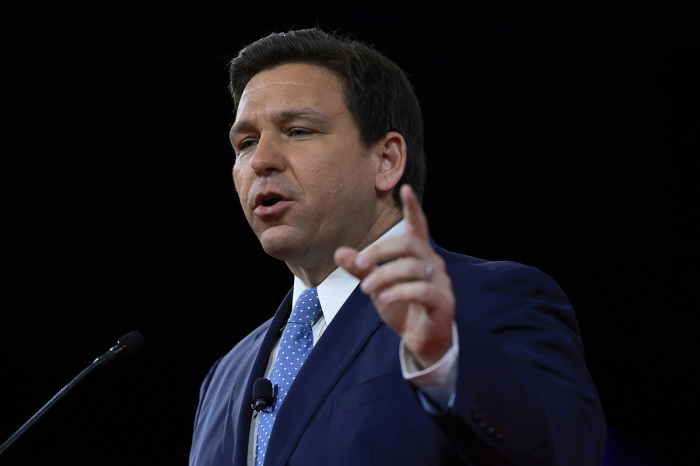Liberal professor says law signed by DeSantis should be 'model for the nation'

A liberal professor is praising a Florida law signed by Republican Gov. Ron DeSantis that she believes should serve as a "model for the nation."
Kara Alaimo, an associate professor of communication at Fairleigh Dickinson University in New Jersey and a self-identified progressive, wrote an op-ed published by CNN supporting House Bill 3, signed by DeSantis last month.
The law bans kids under 14 from opening social media accounts and mandates parental permission for kids aged 14-15 to open them. It is scheduled to take effect on Jan. 1.
"As a progressive, I never thought I'd write this sentence: A law just signed by Florida Republican Gov. Ron DeSantis is brilliant — and should be a model for the nation," she began.
Alaimo, who recently authored a book titled Over the Influence: Why Social Media Is Toxic For Women and Girls — And How We Can Take It Back, stated that the law "stands to be especially beneficial to young girls."
"Research conducted in the [United Kingdom] has found that greater social media use at particular ages predicts lower life satisfaction a year later," she wrote. "For girls, the ages when they appear to be particularly vulnerable on social media are between 11-13 — when, in Florida, they won't be allowed on social networks — and age 19."
Alaimo elaborated on why social media is dangerous for girls in the first age group, noting that they "typically go through puberty" at that stage in their lives, which results in "plummeting" confidence and a poor body image.
"So this is not an ideal time for her to be logging on to apps like Instagram, where she's likely to be flooded with images of the so-called Instagram body, whose proportions are so unrealistic that attaining them usually requires surgery," the professor wrote.
The professor cited research finding that "girls tend to care more about being socially connected, so they typically spend more time on social networks, which leaves them particularly vulnerable to all the harms they experience on them — from cyberbullying to feelings of exclusion when they see pictures of the parties to which they weren't invited."
She stressed that it's "especially important to focus on protecting girls because they seem to suffer the greatest harms from using social media."
"Parents I interviewed for my book frequently told me they feel pressured to let their kids use social networks because their children's friends had phones and social apps and they didn't want their kids to feel left out," she added.
"Banning social media use altogether through age 13 will brilliantly take this pressure off parents, and maybe even give kids aged 14-15 an excuse to give their friends for why they're not on social media — 'my awful parents didn't give me permission.'"
Alaimo also said the law is an effective way to thwart child predators, noting that "most of their targets are ages 15 and younger — the exact ages restricted by Florida's new law."
"Young kids simply shouldn't be on social media, but it's extremely difficult for individual parents to enforce such rules on their own," she concluded. "Florida's new law keeps young people away from the many harms they face online — from predators to content that can be incredibly dangerous to their mental health. This law is truly a friend to parents of all political persuasions."
DeSantis' approval of House Bill 3 comes after it passed the Republican-controlled Florida Senate in a 30-5 vote, and the Republican-controlled Florida House of Representatives voted 109-4 in favor of the legislation. The measure received bipartisan support in both chambers, with four Democrats joining Republicans in supporting it in the Senate and 27 Democrats joining Republicans in supporting it in the House.
The law was not universally supported, however, as the Florida chapter of the American Civil Liberties Union objected to the legislation, believing that it advanced unlawful censorship.
"The age-verification requirements in HB 3 place barriers between users, whether they're adults or minors, and their constitutional right to speak online," said Kara Gross, legislative director of the ACLU of Florida, in a statement released last month.
"Age verification requirements blatantly chill the speech and threaten the privacy of adults by requiring them to surrender their anonymity to engage in constitutionally protected speech."
Gross contends it is unconstitutional for legislators to "control what ideas and information parents can allow their families to access."
"The internet, including social media platforms, contains vast amounts of constitutionally protected speech for both adults and minors. Blanket bans infringe upon our constitutional rights," she said.
Ryan Foley is a reporter for The Christian Post. He can be reached at: ryan.foley@christianpost.com




























